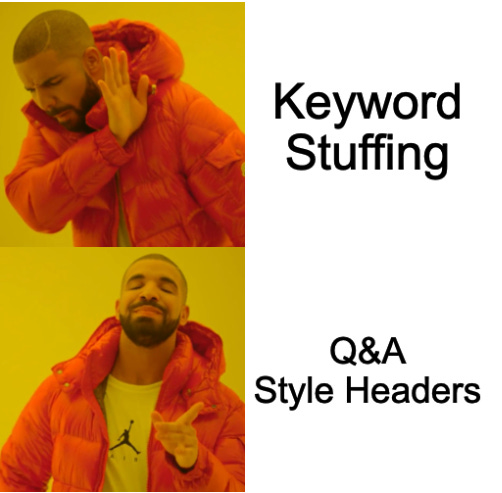Five Things You Should Be Doing to Prepare for the Era of Answer Engine Optimization (AEO)
Plus a quick roundup of the major quarterly earnings announcements
It’s all a bit quiet in the world of social and digital at the moment, or at least in terms of what’s relevant for digital marketers. So, it’s time to zoom out.
As we all know, Search isn’t necessarily dying - it’s evolving. Whether it’s ChatGPT, Google’s AI Overviews, or Perplexity, the way people discover and consume answers is shifting from “ten blue links” to “one confident summary.”
That doesn’t mean SEO as a concept is over - but it does mean we’re entering the era of Answer Engine Optimization: the art of making sure your expertise still gets surfaced, cited, and trusted when an AI does the talking. The good news is that if you’ve been playing the SEO game the right way for the last few years, then you’re already most of the way there.
Here are five ways to future-proof your website (and your sanity) for that reality.
1. Focus on first-party expertise, not just keywords
AI engines don’t care how many times you say “best B2B marketing agency.” They care whether your content sounds like it came from someone who actually is the best B2B marketing agency.
Update key pages to show real author credentials, cite your own experience, use case studies, say something meaningful, and make sure your ‘About’ page signals authority.
E-E-A-T, or Experience, Expertise, Authoritativeness, and Trustworthiness, now matters even when there’s no visible ranking page.
2. Structure your content for clarity
Think FAQ formats, short summaries, and bullet-point answers - not just paragraphs of waffle. Use the kinds of questions people are asking LLMs as headlines - not long tail search terms.
You’re not optimising for skim-readers anymore; you’re optimising for machines that dig deeper for meaning. Clean HTML hierarchy, schema markup, and consistent headings help AI models extract your insights cleanly. Help AI help you!
3. Go deep where others go broad
Answer engines prefer to collect data from multiple sources. If your article says the same thing as ten others, it’s not worth citing. Depth - original data, niche examples, context that shows understanding - increases your chance of being the source behind the summary. To my earlier point; say something meaningful!
4. Audit your brand’s visibility beyond Google
We’re still in the early days of “answer engine visibility,” and there’s no dashboard for it yet. Tools like Perplexity sometimes cite their sources, so it’s worth checking whether your brand or site ever shows up - but treat it as anecdotal, not analytics.
What matters most right now is making sure your content is crawlable, attributed, and clearly written so that, as these systems mature, you’re in the mix when they do start crediting sources consistently.
What you can also do is run tests on LLMs, and also monitor your referrals on GA4 to see if you’re driving more, or less, traffic from them.
5. Keep humans in the loop
AEO doesn’t mean giving up on personality. In fact, the rise of AI summaries makes human tone more valuable than ever. People will still seek voices they trust; if they wanted AI-generated content, then they could have just prompted ChatGPT themselves. Use your blog, newsletter, or LinkedIn posts to build recognition beyond the algorithmic answer box.
The “answer engines” aren’t out to kill your traffic - that’s just a side effect. The brands that succeed in 5 years time will be the ones who see this as an opportunity rather than a threat.
They are rewriting the discovery journey. The brands that adapt fastest won’t necessarily be the biggest, but the clearest, most consistent, and most recognisably human.
What’s been going on this week?
It’s quarterly earnings season!
Meta, Google and Microsoft all announced record earnings off the back of significant AI expenditure - but this has fuelled speculation that we may be in an AI bubble.
Pinterest drove through the 600 million user mark. That’s where the good news ends though, with concerns about its financial performance.
Elsewhere, Ofcorm warned Tech giants that it plans to audit social media algorithms that expose children to harmful content in the UK. This will also include platforms such as ChatGPT and Grok.
That’s it for this week! If you found this interesting, I would hugely appreciate it if you shared with your friends and colleagues.
If you’re feeling particularly generous and enjoyed this edition, I won’t stop you from buying me a coffee. Otherwise, I’ll see you next time 🫶


